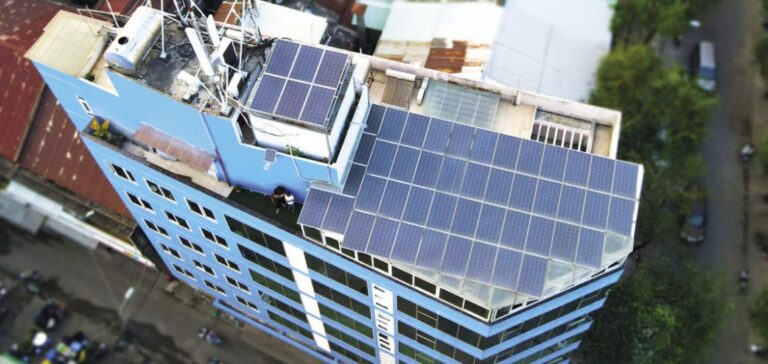Faced with a growing demand for electricity and seeking to diversify its energy sources, Vietnam is stepping up its efforts to integrate solar power into its national grid. The national electricity company, Electricity Vietnam (EVN), has revealed a plan to buy surplus energy generated by solar panels installed on the roofs of homes and offices. This strategic move is part of the energy development plan approved by the government in May last year, which aims to fully exploit the country’s solar potential, estimated at 963 gigawatts (GW). Nevertheless, the government’s 2021-2030 energy plan gives priority to coal and gas.
Modalities and Implications
Vietnam ‘s Deputy Prime Minister Tran Hong Ha has mandated the Ministry of Industry and Trade to draw up the details of this plan. According to the VnExpress news site, the government is proposing to buy up to 10% of the surplus energy produced by rooftop solar installations. The proposed price for this surplus energy is 671 dong (0.0264 USD) per kWh, less than half the price of electricity currently purchased by EVN from solar farms.
Potential and Developments
With 103,000 rooftop solar projects totalling 9.5 GW of installed capacity, Vietnam is demonstrating a significant commitment to solar energy. This plan to purchase surplus energy is part of a wider ambition to see 50% of the country’s residential and commercial buildings equipped with solar panels by 2030. This development reflects a strong political will to transform the country’s energy landscape and reduce dependence on fossil fuels.
Outlook and Analysis
The Direct Power Purchase Agreements (DPPA) initiative, recently introduced by the government, enables plants to purchase electricity directly from renewable energy suppliers. This measure could further stimulate investment in solar infrastructure and other green energy sources. The growth prospects for solar energy in Vietnam are promising, despite the challenge of setting attractive tariffs for producers and affordable tariffs for consumers.
The increased integration of renewable energies, supported by incentive policies and innovative market mechanisms, could position Vietnam as a regional leader in energy transition. The success of these initiatives will depend on the ability of government and industry to maintain a balance between financial incentives and economic viability.






















